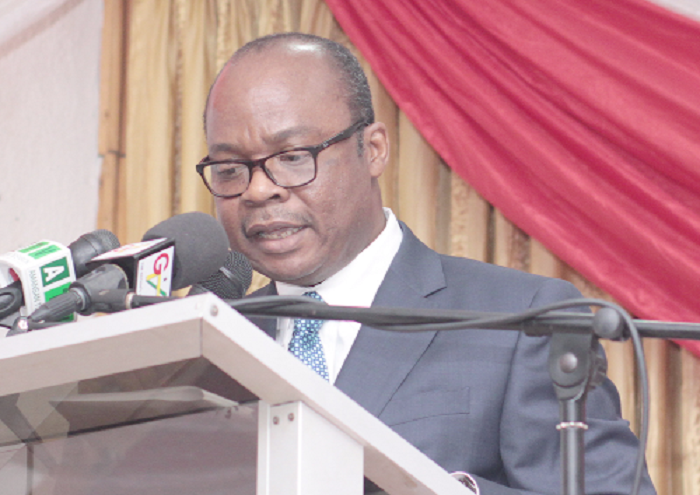
BoG to encourage whistleblowing on banks
The Bank of Ghana (BoG) is fine-tuning a whistleblowing policy that will encourage the general public to pass on confidential information on malpractices in banks for thorough investigations to be undertaken and appropriate sanctions applied.
The policy, which will be the first of its kind by the central bank, will also prescribe protections for whistleblowers as part of a grand strategy by the bank to help encourage whistleblowing on banks in the country.
The Governor of the BoG, Dr Ernest Addison, said in Accra that the move was part of a range of measures due to be introduced into the banking sector.
The initiatives are meant to promote transparency and accountability in the entire financial sector, Dr Addison said at the dinner dance of the Chartered Institute of Bankers (CIB) Ghana on December 2.
“We will advocate a whistleblower provision to protect individuals who raise alerts to the BoG on malpractices by the banks,” he said.
Read also: Ghana-Germany partner to address needs of migrants, others
Impact on bank staff
A former Deputy Governor of the BoG, Mr Emmanuel Asiedu-Mante, and a Banking Consultant, Nana Otuo Acheampong, told the Graphic Business that a whistle-blowing policy would be helpful to both the BoG and employees of banks in the long run.
Beyond giving the central bank leads to infractions in the sector, Nana Acheampong said it would help protect the customers against a possible collapse and its adverse impact on their end-of-service benefits.
“What we learnt from the collapse of the UT and Capital Banks is that the staff lost out; they did not have any benefits. So if there is a whistle-blowing system in place, the staff can report infractions and the BoG will act on it. That way, their jobs and benefits will be secured,” he said.
The Banks and Specialised Deposit-Taking Institutions Act, 2016 (Act 930), which empowers the BoG to withdraw the licences of banks, does not make provisions for staff in the event of bank failures.
God-fearing persons
Mr Asiedu-Mante said although a lot of infractions occurred in the banks, the BoG is mostly unable to identify them, hence the need for a strong whistle-blowing policy.
He recalled an incident where he and his team of supervisors at the central bank had examined and okayed the operations of a bank, only to be alerted by an informant that someone in the bank was siphoning money out for personal use.
“That was like whistleblowing and it put me on the alert and we immediately started investigating,” he said, declining to go into details.
“Some people are so clever that they can hide things. Others can collude but if you get a God-fearing person in there to alert the supervisor, the lead can be followed and it can unravel those behind the dubious deals,” he added.
Lessons from bank failures
The push for a whistle-blowing provision comes on the heels of the collapse of the UT and Capital banks in August this year.
Although the central bank is yet to explain the causes of the two banks’ failure, Dr Addison said on December 2 that the underlying reason was poor corporate governance practices.
“In this instance, we saw the dominant role of shareholders who exerted undue influence on management of the banks, leading to poor lending practices.
“This was also reinforced by weak risk management systems and poor oversight responsibility by the boards of directors,” he said.
Given that the inactions of the management and directors could have led to the collapse, the former deputy governor said it was possible that the BoG was now trying to prevent a repeat through a whistle-blowing policy.
Making reference to some memos from the former Managing Director (MD) of the Capital Bank, Mr John Kofi Mensah, that emerged right after the collapse of the two banks, Mr Asiedu-Mante said a strong whistle-blowing policy could have encouraged the former MD to pass on the information for follow-up.
“I think that it is because of this that the central bank wants to encourage people to come under the cover of whistleblowing to report,” he added.